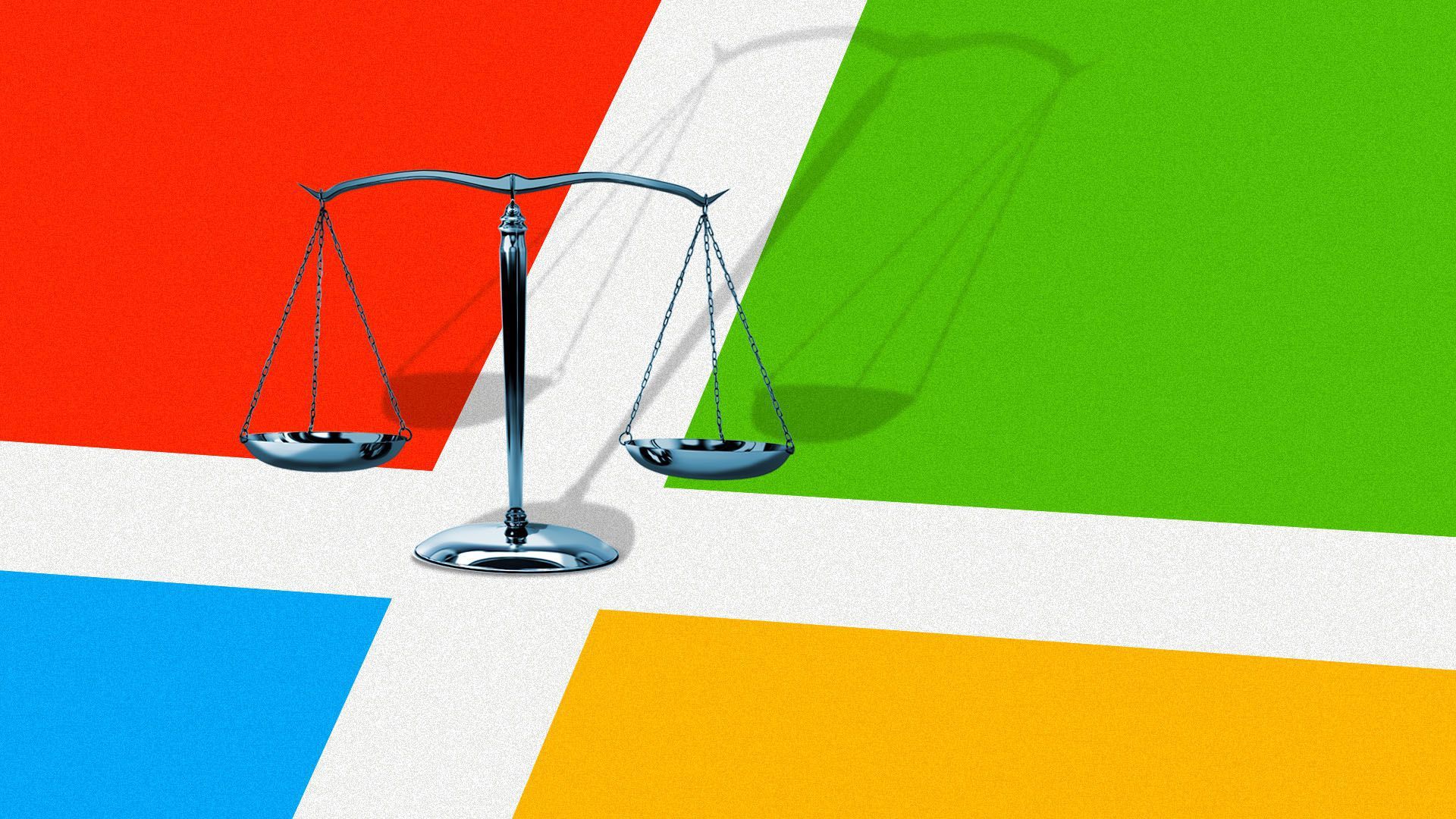Lessons for Facebook, Google in Windows' decline
Add Axios as your preferred source to
see more of our stories on Google.

Illustration: Sarah Grillo/Axios.
The government's attempt 20 years ago to split up Microsoft failed, and sanctions didn't break its hold on the desktop, but many of Windows' current challenges stem from how the company reacted to its years of fighting regulators around the world.
Why it matters: Facebook, Google, Amazon and Apple all face threats from regulators. Even if the companies win those conflicts, just fighting the battle can put them at a disadvantage.
The big picture: The direct consequences of antitrust action rarely threaten tech companies, but, as Microsoft's history shows, just defending against them can distract a company, causing it to lose its edge in product development and its radar for big waves of industry change.
Flashback: One giant bone of contention in Microsoft's battle with antitrust authorities had to do with the bundling of browsers and applications with its dominant operating system.
- When the mobile revolution occurred, Apple and Google bundled everything they had into iOS and Android, including their own browser, apps and app stores. Microsoft, by contrast, was already chastened by the time the iPhone arrived, not to mention forced to divide its time between building products and dealing with regulators.
Yes, but: Other companies that chose to placate regulators rather than fight them were less distracted — but still not guaranteed to catch the next industry wave.
- Chipmaker Intel was quick to settle with regulators whenever it was charged with abusing its similarly dominant position in the market for PC processors. That helped it more smoothly navigate its days of dominance. But, like Microsoft, Intel largely missed out on mobile.
